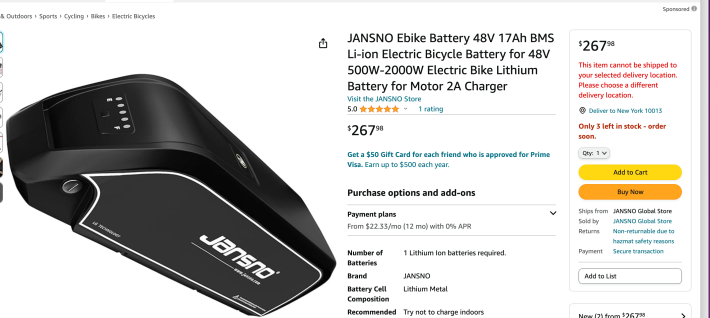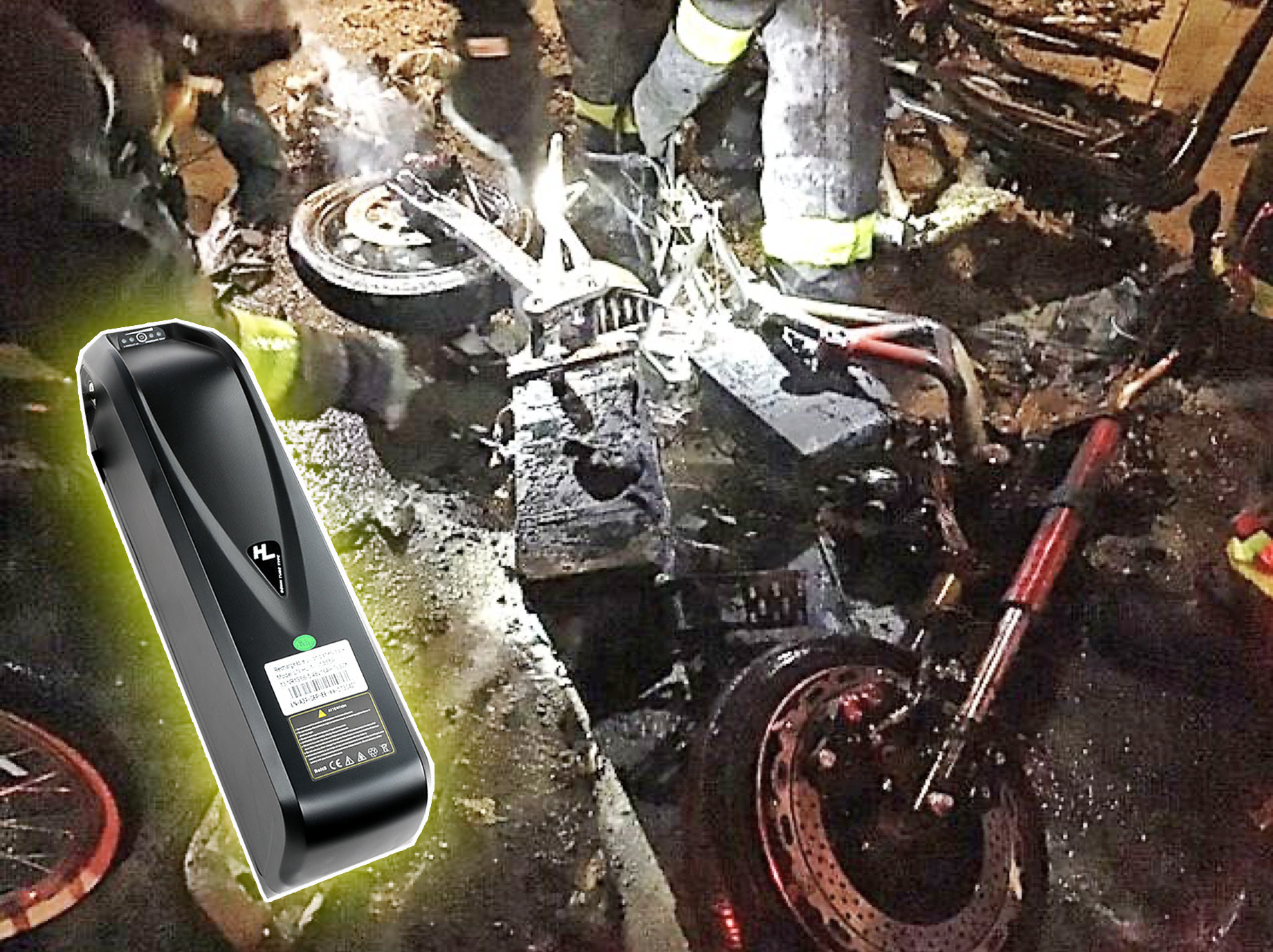One less crime.
Amazon has finally stopped selling illegal batteries to New Yorkers, now making the mammoth online retailer partially in compliance with a city law that prohibits the sale of batteries not approved by the nationally recognized UL Solutions (aka the Underwriters Laboratory), even as it’s still shipping uncertified e-bikes and mopeds.
In September, Streetsblog reported that the Jeff Bezos-owned behemoth was skirting the legislation, known as Local Law 39, which went into effect that month. But as inspectors set out across the city to crack down on brick-and-mortar storefronts selling the uncertified lithium-ion power packs that cause fires, Amazon, eBay and Walmart had still failed to comply. All three firms continued offering both illegal mopeds, for as little as $500, and uncertified batteries, for as little as $219, to residents of the five boroughs.
But following a cease-and-desist letter from the Department of Consumer and Worker Protection last month, Amazon, at least, is now no longer selling illegal batteries, though mopeds and e-bikes are still available. It's not as Amazon doesn't know how to cut off moped purchases by New York City residents; it bars items such as toy guns and bear repellant spray from being shipped to anyone with a ZIP code within the city limits. (Walmart and eBay appear to be selling all of the illegal lithium-ion-powered products.)
“We congratulate Amazon on its decision to partially comply with parts of Local Law 39, and we think this is a significant step forward in fire safety in New York City,” said Baruch Herzfeld, the founder of Popwheels, who initially spotted the illicit items for sale and alerted Streetsblog.

But Herzfeld added that a bigger part of the solution to the crisis of deadly fires sparked by the shoddy power packs would be ensuring that the delivery workers have access to safe storage and charging.
A bill introduced earlier this year to create a citywide "buy back" program that would allow delivery workers to exchange faulty or second-hand lithium-ion batteries for safe, certified ones passed the City Council in September, but has yet to get off the ground. And a plan to open e-bike charging stations at select locations in the city is also facing pushback. New York City Housing Authority complexes are expected to start getting e-bike chargers by the end of this year, Adams announced this past summer.
“However, until delivery workers do not have to maintain or charge their own batteries, NYC’s fire crisis will not go away,” said Herzfeld.
Amazon did not respond to a request for comment, and a spokesperson for DCWP declined to comment.






